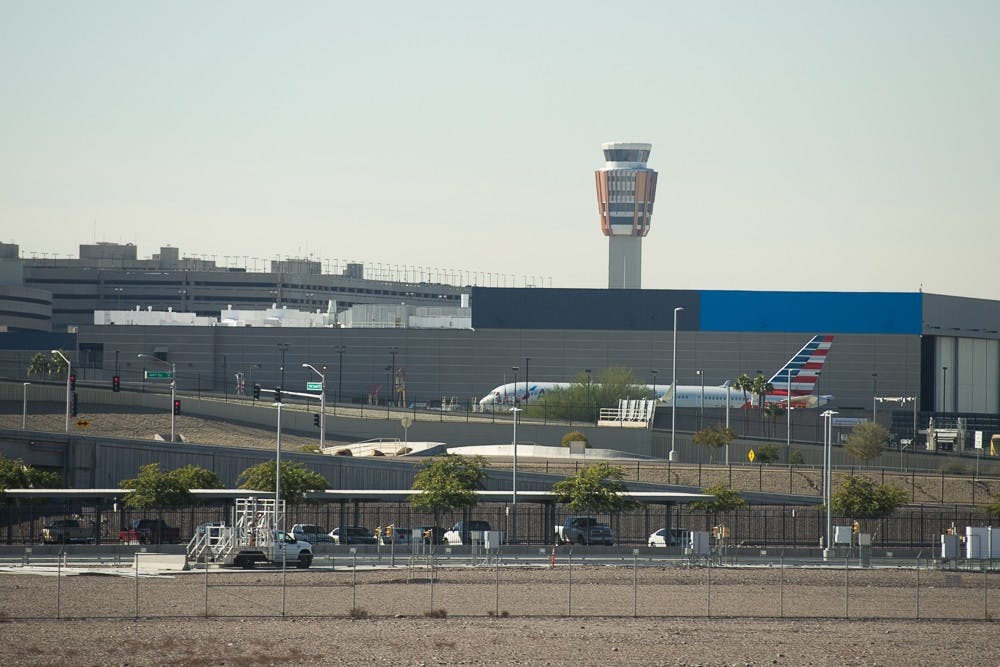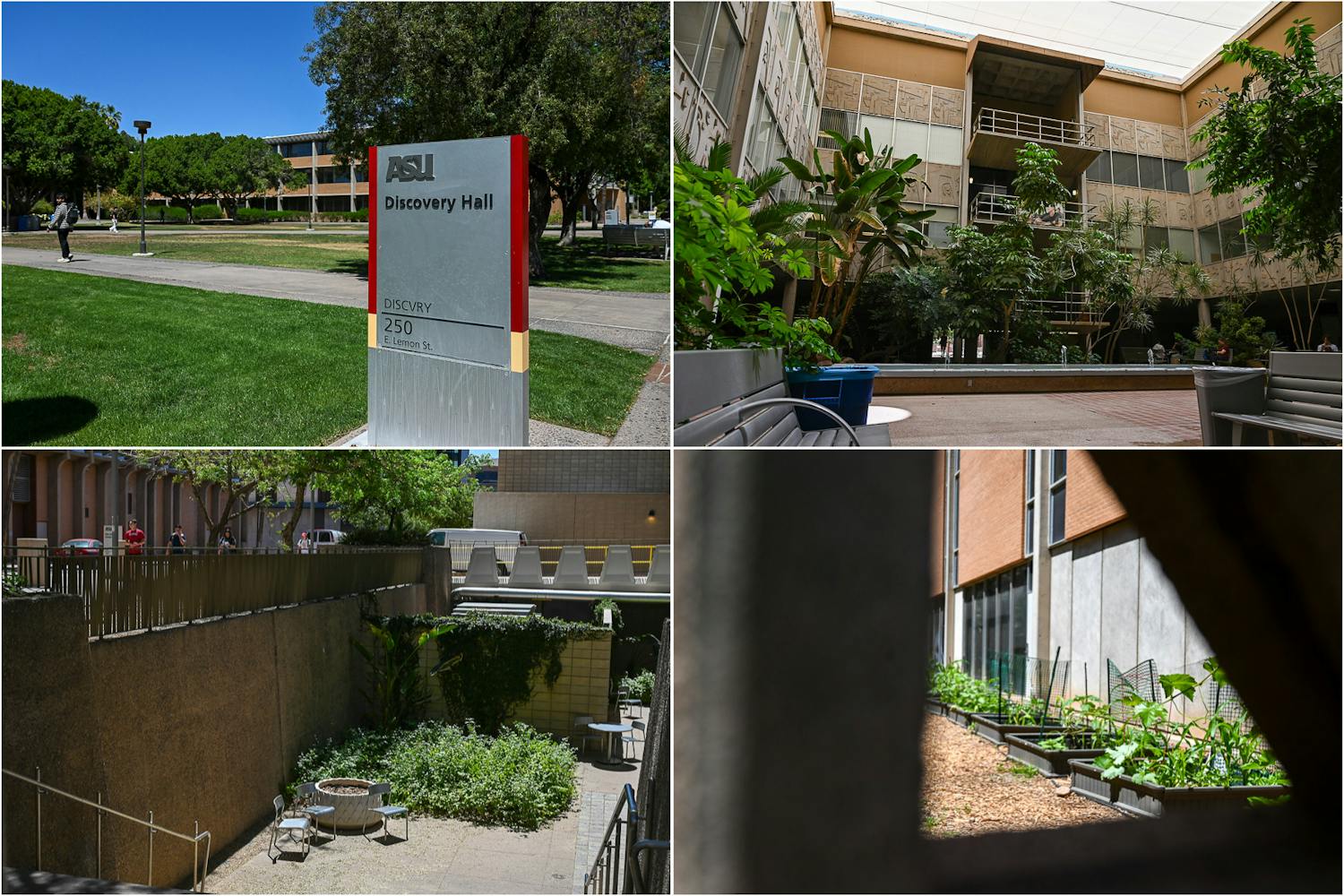In August of 2013, Andrew Brigida graduated from ASU's air traffic management program, a few months after having passed the AT-SAT, an aptitude test meant to predict the success of a future air traffic controllers, with a score of 100 percent.
He is now the plaintiff in a lawsuit brought against the U.S. Department of Transportation, Federal Aviation Administration and administrators within both organizations, alleging discrimination on the basis of race.
After he took his AT-SAT, Brigida said he was recommended to the FAA to be hired, as is protocol for successful students from FAA-partnered Collegiate Training Initiative schools.
However, in early 2014, the FAA notified Brigida and others who had graduated and tested alongside him that the FAA had changed its hiring practices and eliminated the register of recommended applicants. Thus, he needed to reapply under a new process.
Before he could retake the AT-SAT, he said he and the rest of the applicants had to take biographical assessments, which asked questions such as, "Which sports did you play in high school?" and "Would you consider yourself more of a dominant or passive personality?"
Brigida said he, along with 2,000-3,000 others who were qualified under the previous system, failed this test, and were unable to get a concrete reason why from the FAA.
"We were discriminated against," he said. "Everyone received an email right before the hiring began saying their scores are no longer valid, and that (the FAA) was gonna start hiring people off the street."
He said he wants his scores and those of the approximately 3,000 students affected by the change in hiring practice reinstated and the names of those applicants placed back on the recommended list.
Complaint against the FAA
After some digging, he said he found that there was something more to it than just the scores being invalidated.
By "more to it," he means a claim that he was discriminated against based on race. Several documents demonstrate attempts or desires within the FAA to find ways to increase diversity among its air traffic controllers.
Ian Gregor, the FAA spokesperson for the Western States region, declined to comment because the FAA does not discuss pending litigation.
These documents include two Barrier Analysis Reports — an initial and an extension — that examined how air traffic controller hiring practices could present barriers to minority populations.
The opening lines of the reports read: "Administrator Michael Huerta has made an historic commitment to transform the Federal Aviation Administration (FAA) into a more diverse and inclusive workplace that reflects, understands, and relates to the diverse customers we serve."
Throughout the reports, significant disparities are shown in the racial makeups of the various hiring sources. Collegiate Training Initiative schools had some of the lowest diversity, though several schools, including ASU, have programs in place to remedy this issue.
Representatives from ASU's air traffic management program declined to comment on the case or how the program might change in light of new hiring practices.
In the initial report, the general public had the highest diversity and the second highest pass-rate of minimum qualifications for employment. However, it states that the FAA prioritized hiring from Collegiate Training Initiative pools, leading to a lack of diversity.
The extension to the report comes from a different group of analysts and is labeled as the final report, despite being dated before the initial report. The limitations section of the initial report states it did not "meet the needs of (FAA) and/or other stakeholders," due to several difficulties the analysts faced.
However, the extension also shows significant racial disparities.
That being said, an email from within the FAA attached to Brigida's complaint demonstrates at least some feeling that the Collegiate Training Initiative hiring pool was adequately diverse, which, if true, would make the decision to fail to hire the graduates contrary to that claim.
According to the email, which was part of official court documents, "There is a perception that (the Collegiate Training Initiative hiring pool) is not (diverse). So far I (Terry Craft, FAA Manager of External Training Initiatives) do not see this as true."
Brigida's complaint takes further issue at several documents appearing to demonstrate that the National Black Coalition of Federal Aviation Employees, a group advocating for black and other minority employees at the FAA, had some information about how applicants under the new hiring practice could most easily be hired.
Another email included with the court documents, apparently sent by NBCFAE Northeast Region Vice President Shelton Snow, lists several key buzzwords members could put on their resume to stand out, claiming they were provided by an NBCFAE member also in the FAA HR department. The email encourages members to not share the list with anyone outside of the NBCFAE.
Legal perspective
Michael Pearson, of Curry, Pearson & Wooten, PLC, is Brigida's local counsel. Pearson is a former air traffic controller and professor in ASU's air traffic management program. Brigida's case has also been taken by the Mountain States Legal Foundation, a non-profit legal foundation devoted to "individual liberty, property rights, limited government and the free enterprise system."
He said it is not illegal for the FAA to try to increase workplace diversity — in fact, he called it admirable. However, he said it is unconstitutional to do so at the expense of the hiring of member of a majority population, like Brigida.
Brigida's claims for relief are a violation of Title VII of the Civil Rights Act of 1964, a violation of the Equal Protection clause of the 14th Amendment to the U.S. Constitution and a claim that the FAA failed to complete administrative actions in a timely manner.
"Under the disparate impact theory, you have to be able to show that a test was discriminatory or someone was treated unfairly, you can't just say 'I think,'" Pearson said.
The theory he references holds that practices in employment and housing are considered discriminatory and therefore illegal if they have adverse impact on a protected class, such as race.
In other words, for the FAA to change its hiring practices to favor diversity over other traits, there needs to be concrete evidence of prior discrimination against a protected class, which he said is lacking.
Previously, the prioritization of diversity at the expense of the admission or hiring of non-minority populations, or affirmative action, has been permitted by the Supreme Court only if it can pass strict scrutiny.
This means the policy must have compelling governmental interest, it must be narrowly tailored to achieve that interest, and the policy must be as unrestricted as possible in achieving that interest.
Pearson said he does not believe the FAA's new hiring practice passes strict scrutiny.
He also said he does not believe the FAA's claims that the new practice is cheaper and more efficient, citing a lack of evidence and his feeling that hiring from the general population requires more in-house training at the FAA headquarters in Oklahoma City, costing time and money.
Reconciling safety and diversity
Phil Ajayi is a pilot for American Airlines. He has been flying for 22 years.
He said he had heard about a change in FAA hiring practices for air traffic controllers in late 2013, when the change occurred.
"My understanding was that they wanted a more diverse group of people," he said.
He said he thinks it's important to have controllers who have gone through a Collegiate Training Initiative program, but that he does not think those institutions are the only places that can train, adding that, if the FAA has the proper training mechanisms in place in-house, off-the-street hires should not be dismissed.
However, he also emphasized the importance of diversity and multiculturalism in the tower.
"I've found that, just because you have the qualifications ... does not necessarily make you suitable," he said. "Aviation is a global concern. You have pilots coming from Europe, and Asia, and Africa, and by the time you get into US airspace, they're tired. You want someone with the right attitude coupled with the right training. This is why there's a need for more diversity for people who have different backgrounds, or speak a second language for instance."
He said, given a choice between an off-the-street hire who would add diversity to the workplace and a Collegiate Training Initiative graduate, he would choose the latter on paper, but that "institutions cannot teach culture and understanding."
Related Link:
ASU aviation program revival lets students take flight
Reach the reporter at Arren.Kimbel-Sannit@asu.edu or follow @akimbelsannit on Twitter.
Like The State Press on Facebook and follow @statepress on Twitter.






